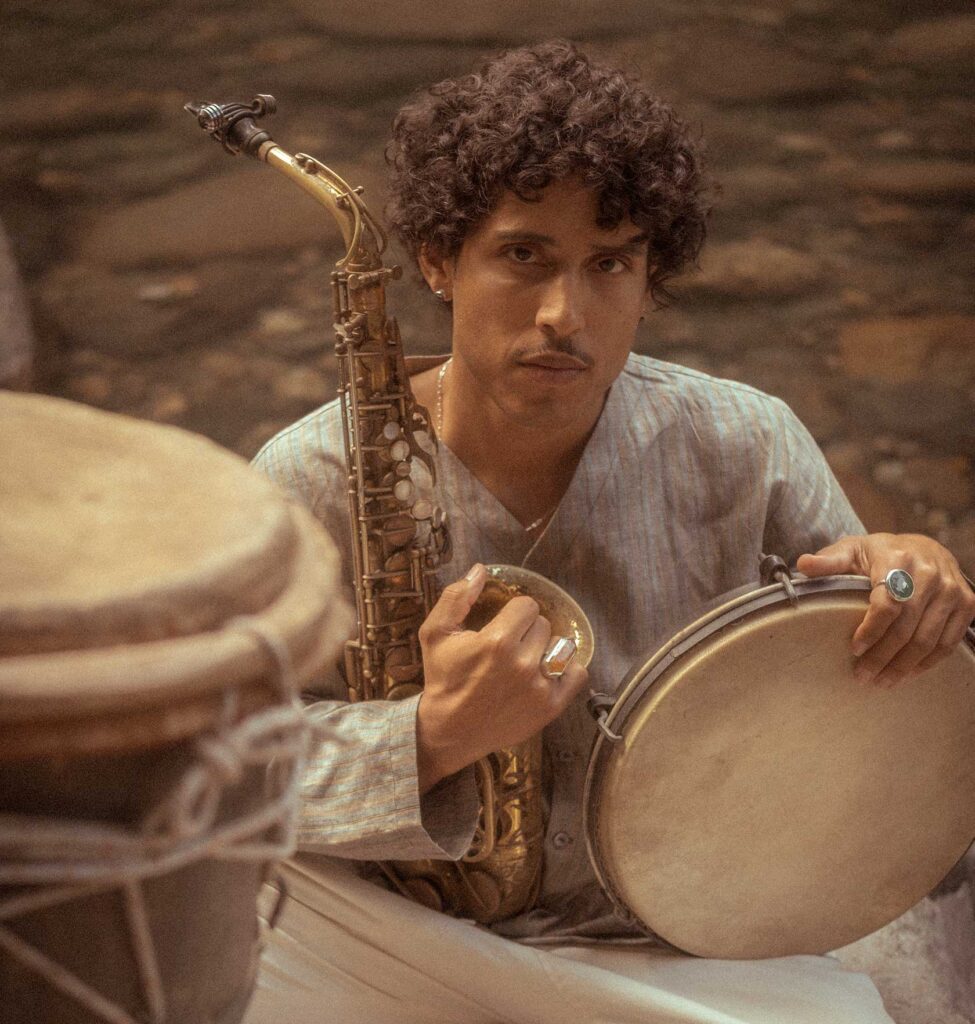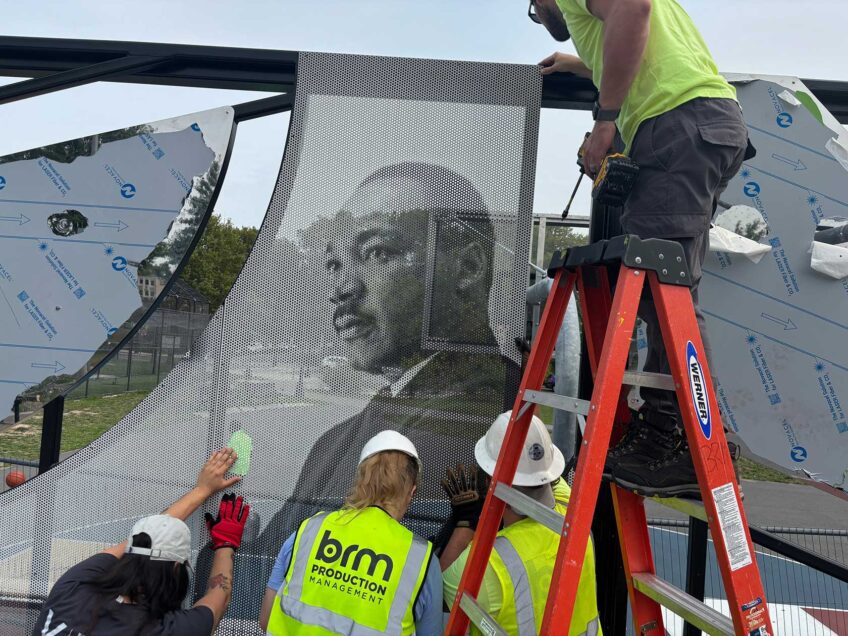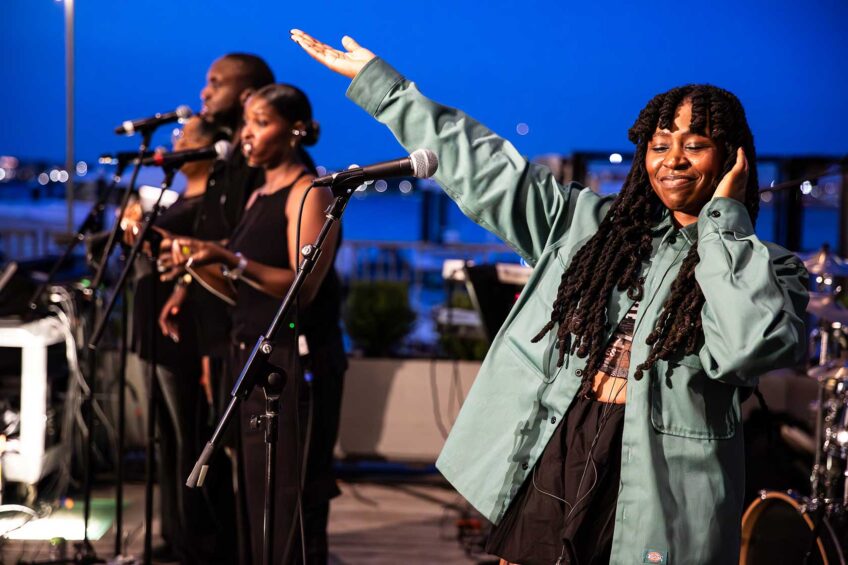Jonathan Suazo’s ‘Ricano’ fuses Puerto Rican, Dominican traditions

Boston-based saxophonist and composer Jonathan Suazo released “Ricano” on Aug. 4, 2023, and the album was recently named by The New York Times as one of the 10 best, across all genres, for the year. Although he is just 34, Suazo, who was born and raised in Puerto Rico, has brought a mature interpretation of the musical traditions of Puerto Rico and the Dominican Republic to his debut recording. The album is both a musical memoir rooted in family and a highly structured series of compositions polished through his education at the Berklee College of Music. Suazo spoke to the Banner recently about the new album and his work.
Banner: Tell us about the album.
Jonathan Suazo: I can start by describing the word “Ricano.” It references my Puerto Rican mother and my Dominican father. When I started to delve into what my roots were, I thought of a project on which to base my career. I asked myself: Why do I play music? Where do I come from? Who am I? I still have so much to dig deeper, to get to the “rice and beans” of it. Then, too, I started playing music when I was 11 years old, and later made my way to Berklee. The music of the Dominican Republic and Puerto Rico got me through very cold and depressing winters in Boston! And part of my mission is to keep those roots and traditions alive in my music.
Who plays on the album?
In addition to me on the saxophone, there are Francisco Alcalá on drums, Eduardo Zayaz on piano, Kike Serrano on percussion, Otoniel Nicolás on percussion, Tanicha López on voice, Génesis Dávila on voice, Giovanni Ortiz on bass, and Juan Aldahondo on guitar. The album also features Miguel Zenón on alto sax, David Sánchez on tenor sax, Ricky Rodriguez on bass, Hans Glawischnig on bass, Fabiola Mendez on cuatro and voice, and Christian Nieves on cuatro.
And your album references Afro-Caribbean music, of course.
Yes, I’m honoring styles by playing around with some of the basic rhythms in those traditions. Not just putting stuff on top of the rhythms, but extracting things from the rhythmic patterns. The possibilities are endless.
You have written about saxophonists John Coltrane, Kenny Garrett and Miguel Zenón as musical influences. Can you say a few words about their specific influence on your work?
Miguel Zenón was my very first influence. It’s his raw energy, the ability to shake up a room with the complexity and intensity of the saxophone, to bring people out of their seats. It hit me in the chest! With Kenny Garrett, especially on his album, “Beyond the Wall,” he makes music that shakes my soul. It’s the one album I cannot live without. And Coltrane? I completely surrender myself to his music.
Cultural identity and musical identity are not synonymous. How do you synthesize these on a personal level?
They’re similar in the sense that we are made up of whatever we’ve been fed. As you keep growing, taking in more, that becomes your identity, which means infinite combinations.
What are you up to nowadays?
I’m basically moving the project — the album — around the States in 2024 and 2025. Giving performances in clubs and at festivals. An important part of the project is to impact as many people as possible through educational residencies, three-to-four-day stays. I performed with a quartet at the Boston Public Library on Jan. 11. The BPL event included favorites from the “Ricano” album as well as debuting a few original pieces.
My music, overall, explores roots that may encourage others to explore their own roots, which can add to their lives. To honor something more important than your own life.







